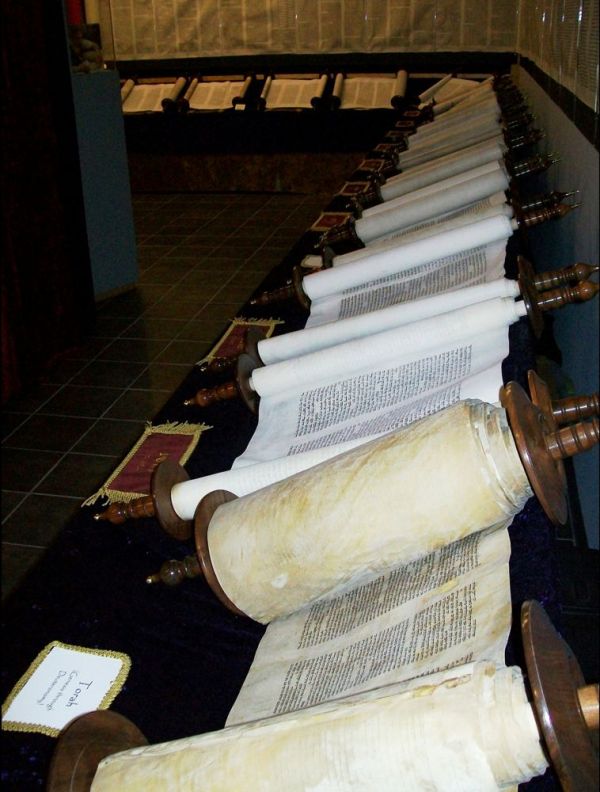(1Cor 15,45-49)
1Corinthians 15:45 the first man, Adam, became a living being, but the last Adam became a life-giving spirit.
1Corinthians 15:46 There was not the spiritual body first, but the animal body, and then the spiritual.
1Corinthians 15:47 The first man from the earth is of the earth; the second man is from heaven.
1Corinthians 15:48 As the man made of the earth, so are they of the earth; but as the heavenly, so are they of the heavenly.
1Corinthians 15:49 And as we have borne the image of the man of earth, so shall we bear the image of the heavenly man.
In these verses Paul delves into the Adam-Christ parallelism. Adam, the first man, because of his sin was a bringer of death, disease, suffering, pain. He was also the cause of a concupiscent body, a body that was difficult for man himself to govern. Adam instead of a father of life proved to be a father of death, instead of freedom he proved to be a father of slavery, instead of salvation he became a father of perdition.
In his infinite and eternal mercy, God had from eternity foreseen an effective remedy against the death that Adam would bring into the world. Thinking of Jesus Christ, Saviour and Redeemer, He thought of Him as the life-giving spirit in order to work our redemption. How did He work it? Through His dead and resurrected body. That body that was clothed with divine and immortal life, with glory and incorruption, the Lord gives it as our food and drink of eternal life so that we too may become partakers of it, and be clothed with it.
Adam bequeathed a body of sin. This is our condition. Only those who become one with Christ can clothe the spiritual body. If we remain outside the body of Christ, we remain in the bondage of vice and sin; we dwell in our selfishness, we spend our days driven and tossed about by the concupiscence that makes us instinctive, passionate, proud, fanatical, transgressors.
To those who ask why the spiritual state, though more perfect, came after the more imperfect animal state, the apostle answers with a general principle: the natural order dictates that we begin with what is imperfect, and then move on to what is more perfect. God wanted to follow this law, and therefore established that the more perfect spiritual state should be preceded by the imperfect animal state.
We have received an animal body; through this body, in a path of truth we are called to clothe the heavenly body. The death of Christ enables us to set out on the journey, because the Holy Spirit in the waters of baptism clothes us with Christ. It is a journey towards acquiring our true humanity. It is a long journey, not easy, it costs the sacrifice and holocaust of our lives. There is only one way: remain anchored in Christ, become one with him.
Adam came from the earth because according to the Genesis account he was moulded from the dust of the ground. This is his origin. Jesus comes from heaven as the true God. He is not from heaven as a body. He assumed the body from the blessed Virgin Mary. He too therefore has a body that was taken from the flesh of Adam, although this flesh by a singular privilege is most holy, full of grace, from the first moment of its conception. The body of Jesus Christ was born in the greatest holiness, but it is still human flesh and therefore Jesus Christ also has a body that comes from the earth, otherwise he could not have redeemed us.
"What is earthly, such also are earthly; and what is heavenly, such also shall be heavenly." Each one produces according to his nature. Adam, who was taken from the dust of the ground, begat men in his image, also made of a material body. But Christ's gift is different: through his passion, death and resurrection his body has become spiritual, glorious. His body bears within itself the perfection of the divine image. By grace we will be in all things similar to his heavenly body, if we allow ourselves to be generated by God through faith. This is the greatest act of love with which God will clothe us tomorrow, if we allow ourselves to be clothed in our souls today through conversion, faithfulness to the gospel, that is, a life wholly made up of the word of Christ.
For "as we have borne the image of the earthly, so shall we also bear the image of the heavenly. By descent from Adam we bore the image of the earthly man; so by faith we shall bear the image of the heavenly man. Christ is in the glory of his spiritualised body. This is the image with which we shall one day be clothed. Towards the fulfilment of this truth we must walk.
The present moment is the place of the passage, that is, of this gestation in which progressively our animal life, our concrete everyday life, our existence, is lived in spiritual terms. And this is already the harbinger of resurrection. Death then will not be the failure of this life, but the next passage which is all a hymn to life. In baptism we have laid down the image of the earthly man and begun to bear the image of Jesus Christ, an image that will become perfect after the resurrection.
Argentino Quintavalle, author of the books
- Revelation - exegetical commentary
- The Apostle Paul and the Judaizers - Law or Gospel?
Jesus Christ true God and true Man in the Trinitarian mystery
The prophetic discourse of Jesus (Matthew 24-25)
All generations will call me blessed
Catholics and Protestants compared - In defence of the faith
(Buyable on Amazon)




